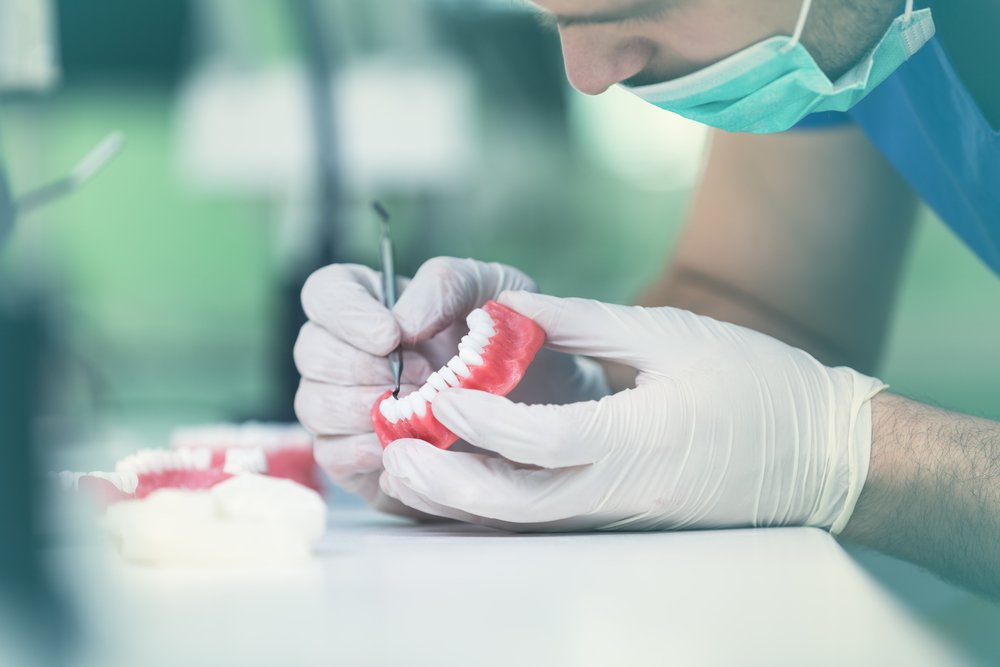
Tooth loss and inadequate detention (fewer than 21 natural teeth) are health issues for Australians of all ages. The Australian Institute of Health and Welfare reports that 1 in 10 adults over 15 years have inadequate detention (and this rate of inadequacy increases with age). For this reason, some people choose dentures in pursuit of improving oral function and take years off their appearances. If you are considering tooth replacement methods, you may want to know how they can improve or hinder your lifestyle. In this blog, Dr. Pathak, a Woolgoolga dentist, clarifies the pros and cons of dentures.
Advantages of Dentures
1. There are many types of dentures.
Dental prosthetists design dentures to look and feel like natural teeth. In partnership with Harry Ramana (our skilled and knowledgeable denture prosthetist with decades of international experience), Dr. Pathak helps patients decide on the following types of dentures:
- Partial dentures
- Full dentures
- Traditional dentures
- Implant-supported dentures
2. Dentures are affordable.
According to a recent Australian Dental Association survey, the cost of complete maxillary dentures can range between $950 and $2,000 (with an average price of $1,350). Compared to dental implants, traditional dentures can be much more reasonable than dental implants (especially when multiple implants are required).
It’s important to mention that dentists set their fees, and their prices reflect on a wide range of factors, including:
- Overhead costs
- Location
- Insurance coverage
- Degree of difficulty needed for each service
3. Dentures are a straightforward tooth replacement method.
Dentures don’t require as much time or in-office appointments as other dental procedures (such as dental implants). Dentists and dental prosthetists work together to design, create, and complete dentures within a few weeks and typically two in-office visits:
- Visit One: The dentist takes dental impressions.
- Laboratory Time: The dentist sends the impressions to a lab for fabrication.
- Visit Two: The dentist fits the fresh set of dentures to the patient’s mouth. If needed, adjustments are made.
4. Dentures provide added support.
The masseter muscle is a thick muscle located in the cheek that closes and opens the jaws during chewing. As time marches on, facial muscles weaken, and studies prove that tooth loss can expedite this process. An eye-opening study published by BMC Geriatrics revealed that tooth loss and masseter muscle thickness have a stronger relationship than aging and skeletal muscle mass index do.
For this reason, dentists sometimes recommend dentures to combat weak and sagging facial muscles. Dentures provide additional support to the jaw and oral muscles, which result in a more youthful, natural appearance in the jaw, mouth, and cheekbones.
Disadvantages of Dentures
1. Dentures can change the facial structure.
When the natural tooth root is missing, the jawbone is not stimulated, leading to bone atrophy. Bone atrophy shrinks the underlying bone and changes face shapes and supporting gum tissue. Furthermore, dentures must be refitted (or relined) every five to ten years as facial structures change.
However, it’s important to note that patients who choose implant-supported dentures do not need to worry about this problem as much. Dental implants are the only tooth replacement option that mimics a natural tooth root and saves the supporting jawbone.
2. Dentures require an adjustment period.
As patients adjust to dentures, they may experience onset discomfort, diet changes, and other difficulties. After 30 days, new denture wearers can expect to feel “normal” again and become accustomed to a foreign object in their mouth.
Chat with a Woolgoolga Dentist about Dentures
Even though dentures are not a perfect tooth replacement option, their benefits outweigh the shortcomings. Start your improved smile journey with dentures today. Call (02) 6654-0650 or message us online to speak about dentures in Woolgoolga.


